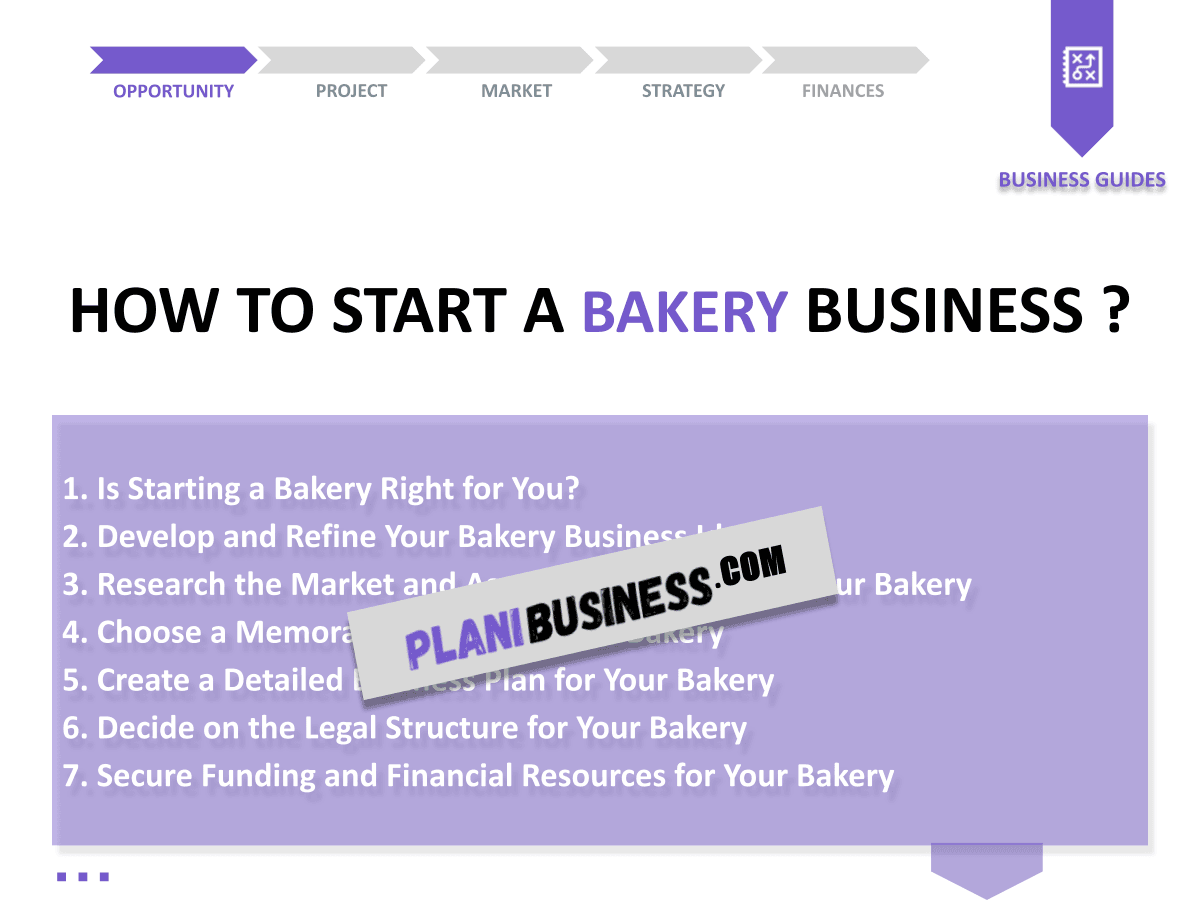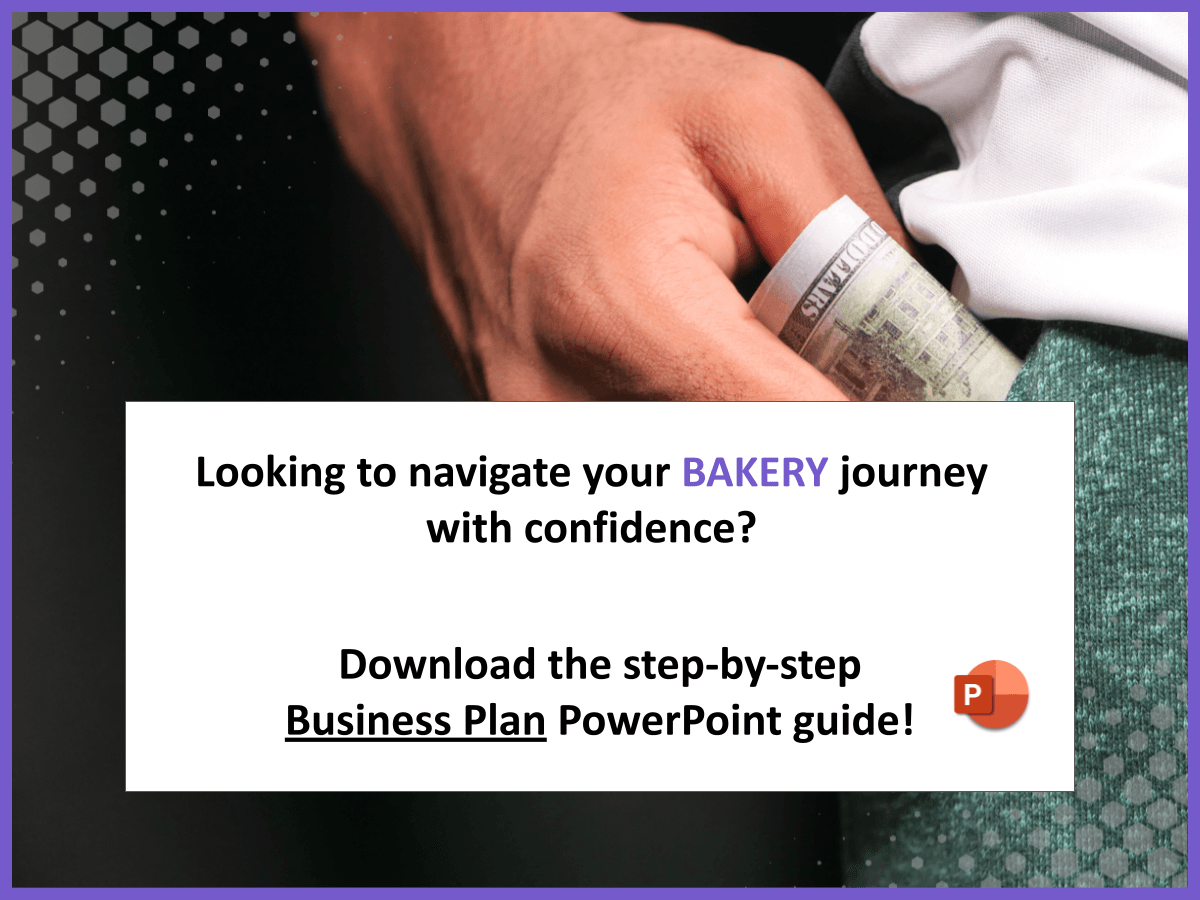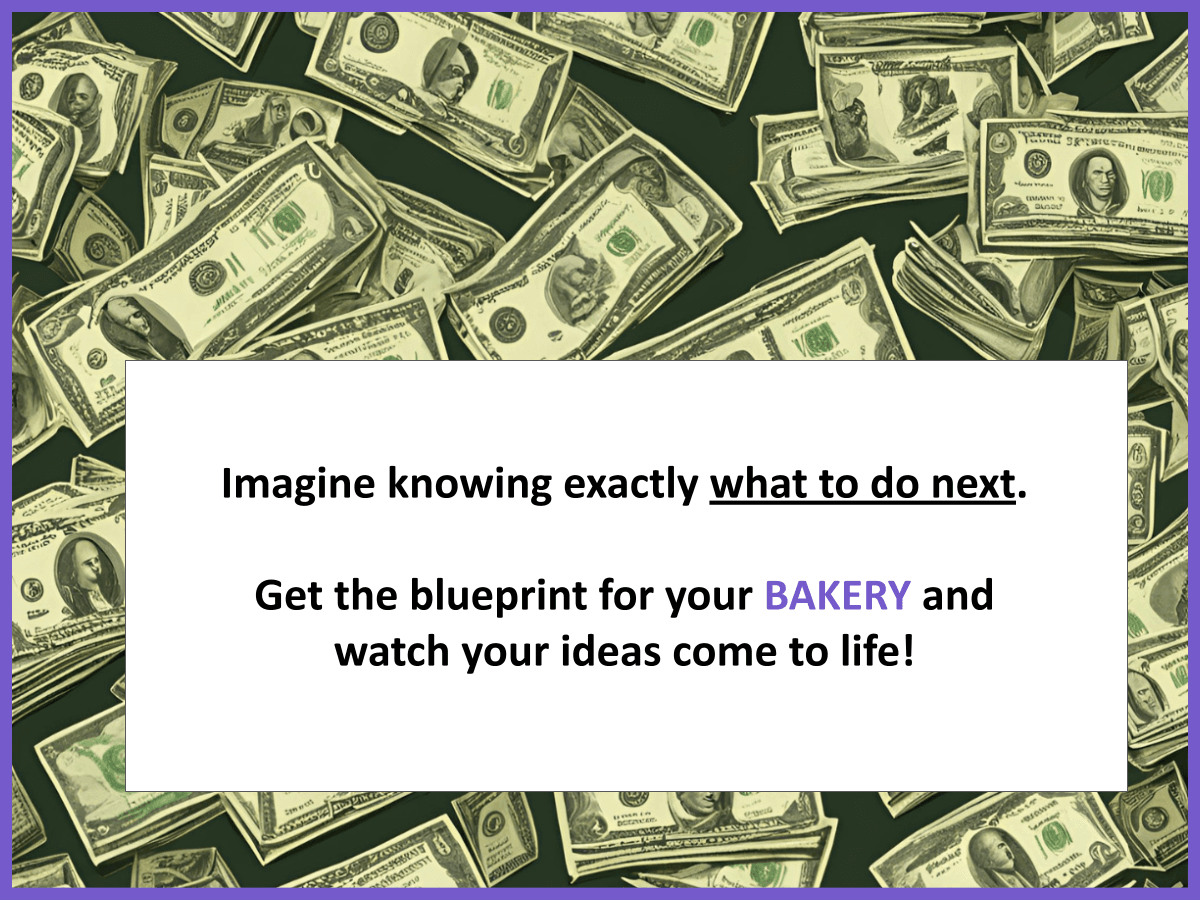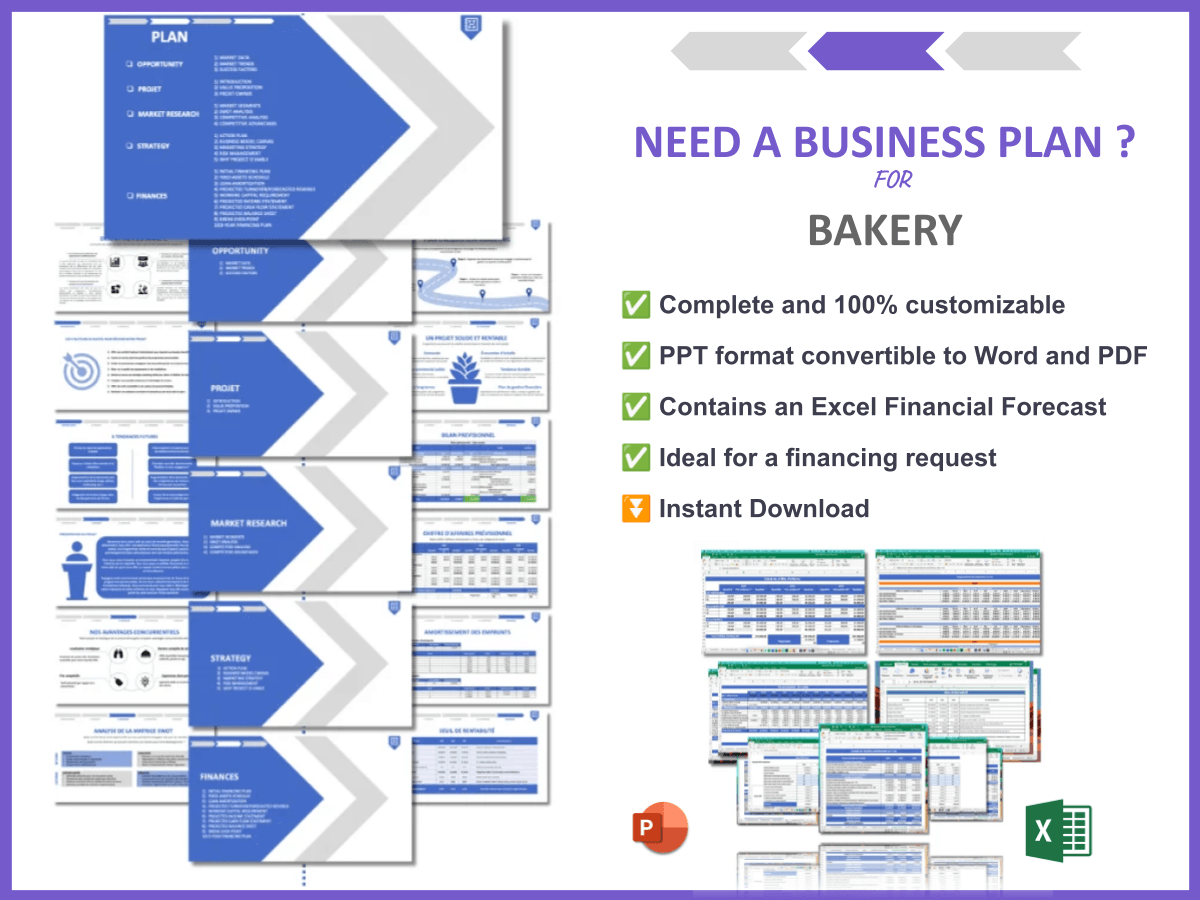Did you know that over 60% of new small businesses fail within the first 3 years? However, starting a bakery can be an exciting venture, especially if you are passionate about baking. How To Start a Bakery is about laying the groundwork for its success. In this article, we’ll cover essential steps, from crafting a business plan to marketing your delicious creations. Here’s a sneak peek:
- Understanding Your Business Idea
- Market Research
- Choosing a Name
- Creating a Business Plan
- Legal Considerations
- Marketing Strategies
Ready to dive in?
1. Is Starting a Bakery Right for You?
Before you jump into the exciting world of baking, it’s super important to pause and ask yourself: Is starting a bakery right for me? This is not just about the love for baking; it’s a mixture of passion, dedication, and business acumen. You’ve got to consider how much time and energy you can realistically put into this venture. Trust me, it’s a lot!
First things first, consider your personal motivation. Why do you want to start a bakery? Is it a lifelong dream or a spontaneous idea? Whatever it is, your passion is what will fuel your business through those late nights and early mornings. Remember, you’ll need to work long hours, especially in the early stages.
Next, think about the skills you possess. Baking skills are a given, but what about managing a team, handling finances, or marketing your baked goods? If you’ve got strong skills in some areas but not in others, don’t worry! You can always learn or consider bringing on partners who complement your skill set.
Finally, think about your risk tolerance. Every business venture has risks, and in the food industry, those can be higher due to food safety regulations and market competition. Are you comfortable navigating those waters?
“Energy is key, but understanding what it takes is fair as crucial!”
2. Develop and Refine Your Bakery Business Idea
Now that you’ve done some soul-searching, let’s get creative! Developing and refining your bakery business idea is where the magic starts. Your idea needs to embody what makes your bakery unique. Ask yourself: What kind of bakery do I want to create? Are you thinking of artisanal bread, gourmet cupcakes, or organic pastries? Each of these niches comes with its own audience and competition.
Let’s break this down into a few brainstorming steps:
- Market Potential: Consider if there’s demand for the type of bakery you want to start. Research local bakeries to see what products are popular and what needs are not being met.
- Niche Advantage: Think about your angle. Do you offer gluten-free options? Or maybe locally sourced ingredients? Identifying a niche market can set you apart from competitors.
Once you have some ideas, it’s time to test your concepts. You might host a tasting event or set up a stall at a local farmer’s market. Gather feedback to refine your offerings. You need to know, “What do clients love?” and “What could be improved?”
“Feedback is your best friend! It will guide your journey and products!”
In conclusion, be versatile and open to changes. Even established bakeries often adjust their menus based on customer preferences. This adaptability can be key to your bakery’s long-term success.
3. Research the Market and Assess Competitors for Your Bakery
Alright, you’ve crafted your bakery idea, now it’s time for some detective work! Researching the market and assessing your competitors is a critical step in figuring out how to position your bakery for success. This might sound intimidating, but trust me, it can be quite insightful.
Start by creating a list of existing bakeries in your area. Drive around and check out their offerings. What products do they focus on? What are their price points? By studying their business models, you can identify gaps in the market that you can fill. Try to answer these questions:
- What makes their bakery stand out?
- What are their popular products?
- How do they attract and retain customers?
Now, while you’re at it, take note of customer feedback. Look for reviews online—grab insights from Facebook, Yelp, or even their own websites. Pay attention to recurring themes: Are customers raving about a specific pastry? Or are there complaints about service? That’s valuable information!
“Knowledge is power! Understanding your competitors can give you a distinct advantage!”
Once you gather this data, analyze what you’ve learned. Map out potential strategies you can implement to differentiate your bakery. This market research phase can save you from costly mistakes down the line, so give it the time it deserves!
4. Choose a Memorable Name for Your Bakery
Your bakery’s name is often the first impression customers will have, so it needs to be catchy, memorable, and reflective of your brand. Let’s dive into some tips on selecting the perfect name for your bakery!
Start by brainstorming words, themes, or feelings related to bakery products. Here’s a speedy list of things to consider:
- Type of Bakery: Is it a cupcake shop, a bread bakery, or a gourmet dessert haven?
- Target Audience: Who are you trying to attract? Families, young professionals, health-conscious eaters?
- Brand Personality: Is your bakery fun and quirky, or elegant and sophisticated?
Once you have some ideas, try them out on friends and family. Get their feedback! You want to ensure that your potential name resonates with your audience—this is a pivotal step in your branding process.
Before you finalize your name, make sure to check the availability of the domain name and search for social media handles. You’ll want to have consistency across your platforms. If your name is unique enough, snag those accounts before someone else does!
“A great name not only reflects your brand but also helps you stand out in a crowded market!”
In summary, take your time with this decision. A strong, memorable name is a vital foundation for building your bakery’s identity, so choose wisely!
5. Create a Detailed Business Plan for Your Bakery
Now that you have a solid idea and a catchy name, it’s time to put pen to paper (or fingers to keyboard) and create a detailed business plan for your bakery. This is a fundamental step that can help you focus your vision and set clear goals. Plus, if you need financing, potential investors will want to see this!
Your business plan should include several key components:
1. Executive Summary: A quick snapshot of what your bakery is about. 2. Market Analysis: Insights from your research on competitors and your target audience. 3. Marketing Strategy: How you'll attract customers and promote your bakery. 4. Operating Plan: Details about your baking processes, supply acquisition, and staffing. 5. Financial Projections: Estimates of your income and expenses.
A well-structured business plan can help you navigate the ups and downs of launching your bakery. If you’re looking for a solid foundation, consider using a business plan template designed specifically for bakery businesses. It can save you a ton of time and help ensure you don’t skip important details!
“Your business plan is like a roadmap—having one keeps you on track and helps you anticipate bumps in the road!”
Remember, this plan is a living document. Revisit it regularly to adjust your plans as you learn and grow.
6. Decide on the Legal Structure for Your Bakery
Choosing the right legal structure for your bakery is crucial, as it impacts everything from liability to taxes. This decision can feel overwhelming, but don’t worry—I’ll break it down for you.
Here are a few common legitimate structures to consider:
- Sole Proprietorship: The least difficult structure, where you’re the sole proprietor. This implies you’re by and by capable for any debts.
- Limited Liability Company (LLC): This protects your personal assets if your bakery faces legal trouble. It’s a prevalent choice among little commerce owners.
- Partnership: If you’re starting the bakery with someone else, a partnership could work well. Just be sure to draft a solid agreement to avoid future conflicts.
- Corporation: This structure is more complex but can be a good option if you’re looking to grow significantly.
It’s enormous to think about what fits your needs—consider speaking with a legal advisor to discuss the implications of each structure. Choosing the right one can offer you essential protections and advantages.
“Your legal structure shouldn’t just be an afterthought! It’s a cornerstone of your bakery’s success.”
As you navigate this process, ensure that you research the requirements for registering your chosen structure in your locality. Each state or country has specific rules, and being compliant from day one will save you headaches down the line!
7. Register Your Bakery to Make It Official
Getting your bakery officially registered is a critical step that legitimizes your business. Once you nail this down, you can start thinking about operations, marketing, and all the fun stuff! So, where do you start?
First, check the registration requirements in your area. Generally, this involves:
1. Choosing a business name and ensuring it’s not already in use. 2. Filling out the necessary paperwork with your local government. 3. Paying any registration fees associated with making your bakery official.
Many states allow you to register your bakery online, which saves a ton of time. But don’t skimp on research; understand local regulations regarding operating a food establishment. These regulations vary widely based on location, and it’s vital to be fully compliant to avoid any future headaches.
“Getting enrolled isn’t fair a box to check—it’s the venturing stone to your pastry kitchen journey!”
Once registered, keep a copy of all documents in a safe place. This will help you stay organized and prepared for any inspections or required renewals in the future.
8. Obtain Necessary Licenses and Permits for Your Bakery
Getting all the necessary licenses and permits is like getting the keys to your bakery kingdom! This step is essential for operating legally and ensures that you meet safety and health regulations.
Here are some common licenses and permits you’ll likely need to consider:
- Business License: This is your basic permission to operate a business and is generally required by your city or county.
- Food Service Permit: Usually issued by your local health department, this permits you to sell food to the public.
- Sales Tax Permit: If your area requires sales tax on food products, you’ll need this to collect taxes from your customers.
- Health Department Permit: Inspections will be part of this process, as the health department ensures your bakery meets hygiene and safety standards.
Make sure to check local, state, and federal regulations when researching what you need. Each jurisdiction has different laws, and sometimes, you might even need additional permits for things like signage or outdoor seating.
“The right licenses and permits aren’t just bureaucratic hurdles—they’re your ticket to operating without hassle!”
Taking the time to understand licensing requirements can save you from fines and legal issues down the road, so don’t overlook this step! Once you have everything in place, you can focus on what you do best: baking delicious goods and serving happy customers!
9. Set Up Your Financial Management Systems for Your Bakery
Establishing a solid financial management system for your bakery is absolutely critical. It’s not just about keeping your money in check; it’s about having a clear vision of your business’s economic health as you grow. So, let’s unpack what you need to get started!
First, decide whether you want to manage your finances manually or use accounting software. There are plenty of options available, but here are a few popular choices:
- QuickBooks: Great for small businesses, it offers various features that can simplify your accounting tasks.
- Wave: A free alternative that provides essential accounting tools for smaller operations.
- Xero: Another paid option with extensive features for more complex businesses.
Once you’ve chosen a system, set up dedicated accounts for your bakery’s finances. This means separating personal and business accounts, which is vital for both legal protection and tax purposes. Trust me, mixing the two can lead to headaches come tax season!
“Knowing your numbers is not fair for the accountants—it’s basic for all commerce owners!”
Regularly tracking income and expenses will help you identify spending patterns and profit margins. Establishing a budget also empowers you to plan future expenses and investments more accurately. Overall, a solid financial system is your bakery’s backbone!
10. Establish Your Bakery Brand Identity
Your bakery brand identity is what will make your business stand out in a competitive market. It’s not just about a logo or a name; it’s the persona you want to present to your customers. So, let’s craft a brand that reflects you and your baked goods!
Start by defining what your bakery represents. Here are some elements to consider:
- Mission Statement: Craft a concise statement that expresses your bakery’s purpose—what do you hope to achieve?
- Visual Identity: Think about color schemes, fonts, and design elements. These should reflect the style of your bakery, whether it’s rustic, modern, or whimsical.
- Brand Voice: Consider how you’ll communicate with your customers—will it be friendly, formal, educational, or fun?
You might also want to create a logo that encapsulates your brand identity effectively. You don’t need to be a designer—there are tons of online tools and freelancers that can help you create something professional.
“Your brand is the heart and soul of your business—make beyond any doubt it beats strong!”
Finally, apply this brand identity consistently across all platforms, including your bakery’s website, social media, and physical location. This consistency builds trust with customers and fosters loyalty—a key to keeping your bakery thriving!
11. Develop a Professional Website for Your Bakery
In today’s digital age, having a professional website for your bakery is more important than ever. It’s not just about being online; it’s a way to showcase your products and connect with customers. Let’s break down how to create an effective online presence!
Start by deciding on a platform for your website. Here are some popular options:
- WordPress: Offers great flexibility and thousands of templates to choose from.
- Wix: Very user-friendly and includes drag-and-drop options for easy design.
- Squarespace: Known for sleek designs and integrated e-commerce features, ideal for bakeries.
Your site ought to incorporate basic components such as:
1. Home Page: A welcoming introduction to your bakery. 2. Menu: Showcase your delightful offerings. 3. About Page: Share your story and what makes your bakery special. 4. Contact Information: Make it easy for customers to reach you or place an order. 5. Online Ordering: If possible, integrate an e-commerce section to boost sales.
Don’t forget to optimize your website for SEO (Search Engine Optimization) to increase your visibility on search engines. This includes using relevant keywords, such as how to start a bakery, in your content. This will help potential customers discover you when they search for local bakeries!
“Your website is your digital storefront—make it appealing and easy to navigate!”
Regularly overhaul your site with unused items, advancements, and web journal posts. This keeps your audience engaged and can enhance your search rankings.
12. Market and Advertise Your Bakery
Now that you have all the foundational elements in place, it’s time to spread the word! Marketing and advertising your bakery is essential for attracting customers and building loyalty. So, how do you get started?
First, consider your target audience. Who are they, and what are their interests? Tailoring your showcasing technique to them is significant! Here are some effective techniques to get the ball rolling:
- Social Media: Platforms like Instagram and Facebook are perfect for displaying mouthwatering photos of your baked goods. Engage with followers and share behind-the-scenes glimpses!
- Local Events: Participate in farmer’s markets, food fairs, or community events to showcase your products and connect with locals.
- Email Marketing: Collect customer emails and send them newsletters with updates, special offers, or new product launches.
Don’t underestimate good old-fashioned offline marketing either! Flyers, business cards, and local newspaper ads can help, especially in tight-knit communities.
“Good marketing builds trust and community—it’s about relationship-building!”
Lastly, always ask for feedback from your customers. Reviews, testimonials, and constructive criticism can guide your marketing efforts and improve your offerings.
13. Assemble Your Team for Your Bakery
Last but certainly not least, assembling a talented team is crucial for your bakery’s success. You can’t do it all alone, especially during busy hours! Hiring the right people can transform your bakery experience.
Start by identifying the roles you need to fill:
- Bakers: Skilled individuals who will help create the delicious products you sell.
- Front-of-House Staff: Employees who will engage with customers, manage sales, and create a welcoming atmosphere.
- Marketing Coordinators: If your budget allows, hire someone to focus on your marketing efforts, as this can drive more customers through your doors.
When hiring, don’t just focus on skills—consider your candidates’ attitude and how well they align with your brand. A cohesive team can elevate the bakery culture and contribute to better customer experiences.
“Your team doesn’t just work for you; they represent your brand!”
Once you’ve assembled your team, create an inclusive environment that fosters collaboration and growth. Regular training sessions can keep everyone up to date with practices and improve service quality.
Remember, a strong team translates to a strong bakery. Invest the time in building it right, and you’ll see the benefits in no time!
Conclusion
Starting your own bakery can be one of the most rewarding journeys if you’re driven by passion and creativity. From developing your unique business idea to building a solid team, each step we’ve discussed is vital for your success. Remember, the journey doesn’t end once the doors open; continuous adaptation and learning will keep your bakery thriving.
If you’re interested in further expanding your knowledge, check out our articles about creating a SWOT Analysis for your bakery and learning how to write a Bakery Marketing Plan. These resources provide valuable insights that can elevate your bakery strategy.
Stay passionate, stay informed, and most importantly, enjoy the process of bringing your sweet creations to life!
FAQ
- What are the initial steps in how to start a bakery?The initial steps include developing your business idea, conducting market research, creating a business plan, and securing funding.
- How much cash do you require to begin a bakery?The amount varies widely based on location, size, and concept but typically ranges from $10,000 to $50,000 or more.
- Do I need a license to open a bakery?Yes, a business license, health permit, and possibly other licenses are required, depending on your local regulations.
- What should I include in my bakery business plan?A solid business plan should cover your business concept, target market analysis, marketing strategies, operational plans, and financial forecasts.
- How to market my bakery?Using social media, local events, community engagement, and email marketing are effective strategies to promote your bakery.
- What’s the best way to find suppliers for my bakery?Research local suppliers, attend food trade shows, and network with fellow bakery owners to source reliable suppliers.
- How can I make my bakery stand out?Identify your unique selling proposition, focus on quality and branding, and always engage with your customers.
- Is it better to start a bakery from scratch or buy an existing one?Starting from scratch allows for full control over your brand, while buying an existing bakery provides an established customer base and streamline processes.
- What are some popular bakery trends?Popular trends include gluten-free options, vegan pastries, and artisanal artisan breads.
- How do I set prices for my bakery products?Consider ingredient costs, labor, overhead, and competitor pricing to ensure profitability when setting prices.







